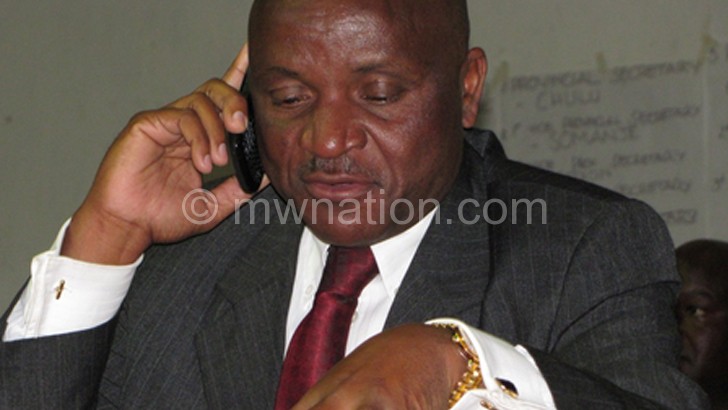Fisp logistics stir uproar in Parliament
There was uproar in Parliament in Lilongwe on Thursday when members of Parliament (MPs) took to task the Ministry of Agriculture, Irrigation and Water Development to explain logistical hitches marring the Farm Input Subsidy Programme (Fisp).
The MPs, among others, sought an explanation on why coupons for redeeming inputs under Fisp were only distributed to the Southern Region. They also demanded to know why some fertiliser suppliers have pulled out of the programme over alleged disagreements on prices.
Mzimba West MP Harry Mkandawire (People’s Party-PP), setting the ball rolling, wondered why the Southern Region was prioritised when parts of Dowa and Dedza in the Central Region and Mzimba in the Northern Region have received rains.
He said: “In addition, can you respond if the rumours that fertiliser suppliers have abandoned the system are correct?”
In response, Minister of Finance, Economic Planning and Development Goodall Gondwe, who was answering on behalf of Chiyembekeza, said government got it wrong on coupons distribution.
He said: “When we were ordering for print, we followed past trends that rains begin in the Southern Region then Central and [finally in] the North, but clearly we were wrong. But let me clarify that it is only a third of the coupons which have arrived, the rest will come later.”
The first batch of coupons, 687 900, arrived in the country on Tuesday this week and are meant for the three agricultural development divisions (ADDs) in the Southern Region—Shire Valley, Blantyre and Machinga.
Fisp deputy national coordinator Osborne Tsoka told The Nation on Tuesday the distribution is following the rainfall distribution pattern which starts in the Southern Region.
The other batch of 812 200 coupons is expected in next Tuesday, according to Tsoka, to cover the Northern and Central regions.

In his explanation, Gondwe also said as part of new reforms, smallholder farmers can redeem their coupons at both the private sector outlets and State produce trader, Agricultural Development and Marketing Corporation (Admarc) and Smallholder Farmers Fertliser Revolving Fund of Malawi (SFFRFM).
On suppliers pulling out, Gondwe said there will be no extra funding under Fisp in light of fluctuations of the kwacha in recent months.
Opposition MPs alleged that some fertiliser suppliers under the Association of Fertiliser Companies in Malawi have stopped supplying the commodity under the programme, pushing to renegotiate the initial agreement which had a flat rate.
In previous seasons, government bore the blunt of exchange rate risk resulting in bloating the Fisp budget.
Said Gondwe: “This year, we have decided that we will agree on a price with the suppliers and we will not be moved at all despite the changes in the exchange rate. So far, only two companies are against the idea, but we have others who can cover that. We don’t need them at all.”
The minister confirmed two companies have opted out.
Government has piloted a fertiliser distribution system to run parallel against the normal distribution mechanism through Admarc. Under the system, companies have been asked to buy and distribute fertiliser at an agreed rate which government will pay after farmers have redeemed their coupons.
Fisp was introduced in the 2005/06 growing season to boost production by enabling smallholder farmers to buy improved seed and fertiliser.
The programme has also come under fire from economic analysts, including the Economics Association of Malawi (Ecama), who have called for an exit strategy as the cost of the programme is not sustainable and a strain on public resources. n





